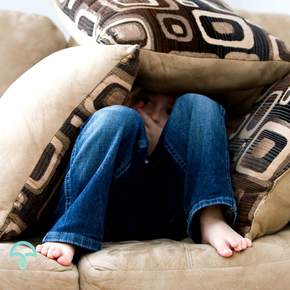 Being on the receiving end of criticism is never easy. Being criticised probably comes in moments when we feel ourselves most vulnerable - whenever we make mistakes, feel embarrassed or fear disappointing others. Having somebody to judge us about being wrong, foolish or inadequate is very unpleasant and challenging experience for anyone. However, the impact of criticism to different people varies immensely and is based on one major factor - their childhood. The Inner Critic: What Causes It?Attachment and our core emotional needsThe way we experience criticism in adulthood on the scale from simply unpleasant to catastrophic is based on the way we had experienced criticism ages ago when we were children or perhaps teenagers. While some people may experience criticism as merely situational, others may draw conclusions about their value as human beings. Childhood is a crucial period in our life. We are all born vulnerable and unable to survive by ourselves and this is why we desperately need the care and love of our parents. Our first connection to our caregivers is vital for our survival and it sets the ground for meeting our core emotional needs. It is through their patience, support and validation of us and our needs that we learn about ourselves in connection to others and the world. Within this first bond we experience a unique process of attachment. This process is the basis of our growth and development - physically, emotionally and intellectually. The core element of this process revolves around how our core emotional needs were met from the day we came to this world. Our core emotional needs are universal, meaning that we are all born having the same baseline of needs: to feel safe, stable, nurtured and accepted; to have autonomy, to feel competent and to have a sense of identity; to have the freedom to express your own needs and emotions. If our needs are sufficiently met, we internalize the beliefs that we are worthy of love and care, that our boundaries and freedom of expression are respected, that we can securely and safely connect with others and form lasting bonds. Related:The birth of the Inner Critic The way our parents treated us, became the way we viewed ourselves. It was by being loved and cared for that we learned how to love and care for ourselves and for others. We were inevitably reliant on the way we were valued by another human being (our primary caregiver) in order to learn about the world and ourselves. We did not need the love and care of many; having one person to root for us was good enough. However, without this initial bond early on in our childhood we cannot be convinced later on in life that we are worthy of the love of others. As children we assumed that if we did not receive love and care from our parents, we must have done something wrong and that therefore there must be something wrong with who we are as individuals. If we go through childhood experiencing lack of love, safety, consistency, support or guidance, this belief grows and strengthens. It becomes our inner critic. The Inner Critic in AdulthoodThe role of the inner critic in relationshipsAs adults, we assume on a deep emotional level that what we experienced as children is ultimately what we can expect from any other important relationship, especially with romantic partners. Sadly, as our inner critic develops, we tend to drive ourselves to seek out situations in which there is a high possibility of receiving confirmation for our beliefs. We might seek out partners that are perhaps emotionally distant, lacking compassion or are unattainably demanding and critical towards us, only to unconsciously confirm our long-lasting and lingering assumption that we are not good enough to be loved. Or perhaps even with emotionally attentive partners, we could avoid intimacy, act defensively or sabotage the development of secure bond that could feel very unfamiliar to us. Paradoxically, while we have no responsibility for developing such beliefs about ourselves, we tend to unconsciously assert them by our choices of partners, as well as our behavior in other significant relationships. In this way, we tend to seek a sense of integrity, while asserting our unconscious beliefs about ourselves as well as a sense of familiarity to what closeness felt like when we were children. In other words, if not healed through different experiences, our critical beliefs become self-perpetuating. We might go through life with a sense of bitterness, hopelessness and disappointment, thinking that connection and love are simply unattainable for us. Related:How To Overcome The Inner Critic While many of us inevitably fall into the critic’s trap, there is still an immense opportunity to move ourselves from the unhelpful beliefs about ourselves to more balanced and compassionate outlook. At the same time, nurturing more balanced beliefs through our behavior and choices is a vital part of the process of making peace with our inner critic and expanding our opportunities to feel worthy of love. Recognizing and challenging our inner critic can have an immense impact on our emotional well-being and the way we bond with our current and future partners. By freeing ourselves from our critical voice we make more space for creating a better connection first with ourselves and next with anyone else in our lives. Does this sound familiar? Related:Take action now!
Resources
Written by Rositsa Stoycheva
0 Comments
Your comment will be posted after it is approved.
Leave a Reply. |
Therapy |
|
